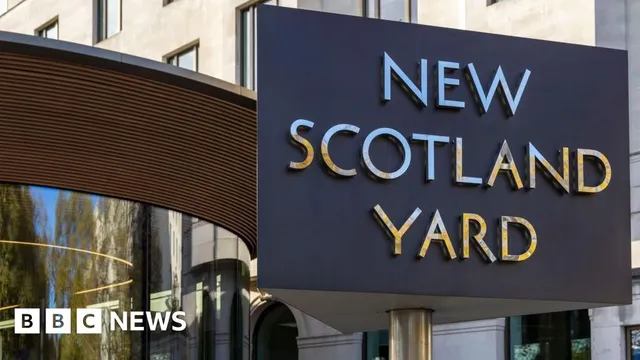
Legal action underway against Britons for alleged war crimes in Gaza
2025-04-07 19:32- A criminal complaint against 10 British citizens who served in the IDF is filed with London police.
- The dossier includes evidence of targeted killings and indiscriminate airstrikes on hospitals.
- Legal experts emphasize the importance of accountability and the obligations of British nationals under international law.
Express your sentiment!
Insights
In the United Kingdom, a team of British attorneys has taken significant legal steps by filing a comprehensive dossier with the London Metropolitan Police that details alleged war crimes committed by British citizens in the Israeli Defense Forces (IDF) during the conflict in Gaza. This submission, which contains documented evidence spanning from October 2023 to May 2024, accuses ten British nationals of heinous acts, including targeted killings of civilians and assaulting medical facilities. The filing was led by prominent human rights barrister Michael Mansfield KC, representing the Palestinian Centre for Human Rights and the Public Interest Law Centre. The dossier, amounting to 240 pages, highlights specific incidents where civilians, including aid workers, were reportedly killed, along with evidence suggesting indiscriminate airstrikes on hospitals and other protected sites. It was submitted on a Monday, aiming to prompt a thorough investigation by the War Crimes Team at Scotland Yard. Mansfield emphasized the legal obligation of British nationals to refrain from participation in war crimes, asserting the necessity for accountability, particularly when international laws are suspected of being violated. Witness testimonies included in the dossier paint a grim picture of the civilian toll, outlining scenes of mass graves, horrifying encounters, and devastating personal losses faced by families caught in the conflict. The evidence gathered has drawn attention to the complexities of the roles that foreign nationals play in armed conflicts abroad, highlighting a jurisdictional intersection that raises ethical and legal questions about complicity in international crimes. Moreover, it demonstrates a proactive stance by legal entities in the UK regarding international law and war crimes, especially as this situation unfolds amid the backdrop of the ongoing conflict in the Gaza Strip. The allegations come against a backdrop of rising international scrutiny concerning military actions in Gaza, with reports indicating a substantial death toll, primarily among civilians. Although the Israeli government has denied any wrongdoing, the advocacy groups filing the complaint argue that it falls within British jurisdiction to address potential crimes committed by its nationals. This case has attracted considerable attention, underscoring the responsibilities associated with military engagement and the accountability of foreign fighters engaged in foreign conflicts. It remains to be seen how the London Metropolitan Police will respond and whether there will be any legal consequences for the individuals named in the report.
Contexts
The Gaza conflict, a long-standing and multifaceted issue, has been marked by violence, political strife, and widespread humanitarian crises. Since the mid-20th century, the region has been embroiled in disputes over territorial claims, governance, and ethnic identity. The ongoing conflict is primarily between the State of Israel and Palestinian groups, particularly Hamas, which has been in control of Gaza since 2007. The use of military force, rocket attacks, and airstrikes has resulted in substantial civilian casualties, destruction of infrastructure, and grave violations of human rights. Each escalation of violence has brought with it an increased level of humanitarian suffering, complicating an already dire situation for the civilian population in Gaza and the surrounding regions. The humanitarian impact of the Gaza conflict cannot be overstated. The continuous hostilities have led to severe shortages of basic necessities such as food, clean water, and medical supplies. The blockade imposed by Israel has limited the movement of goods and people, creating an environment of desperation for many residents. The health care system in Gaza has been strained to its breaking point, with hospitals overwhelmed by the influx of casualties from ongoing clashes. Furthermore, the psychological toll on the civilian population, especially children, has been significant, leading to a generation growing up amid trauma and fear. In addition to immediate humanitarian concerns, the conflict has sparked international debates regarding responsibility and accountability. Various human rights organizations have condemned actions taken by both Israeli forces and Palestinian groups, highlighting the need for a comprehensive and sustainable resolution to ensure the rights and safety of all individuals affected by the conflict. The international community has repeatedly called for ceasefires during particularly intense periods of fighting, but these efforts have often been short-lived and have failed to address the underlying issues that fuel the conflict. The future of Gaza remains uncertain as political solutions appear elusive. The necessity for dialogue and cooperation between Israeli and Palestinian leaders is paramount to foster long-term peace. While numerous attempts at peace negotiations have failed, it is crucial to continue putting forth diplomatic efforts that prioritize humanitarian relief and pave the way for a sustainable solution. Engaging grassroots organizations and local initiatives that work towards peacebuilding and economic development can help lay the groundwork for a stable future in the region. Without concerted efforts to alleviate the humanitarian crisis and a renewed commitment to peaceful dialogue, the cycle of violence is likely to persist.